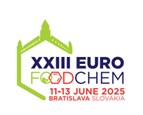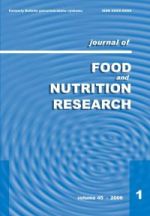Scientific journal
57 2018
Journal of Food and Nutrition Research
Summary No. 3 / 2018
Miedzianka, J. – Pęksa, A.
Effect of acetylation on quality attributes of potato protein preparations heated to various temperatures
Journal of Food and Nutrition Research, 57, 2018, No. 3, s. 264-273
Joanna Miedzianka, Department of Food Storage and Technology, Faculty of Biotechnology and Food Sciences, Wroclaw University of Environmental and Life Sciences, Chełmońskiego Str. 37, 51-630 Wroclaw, Poland. E-mail: joanna.miedzianka@upwr.edu.pl
Received 13 July 2017; 1st revised 19 January 2018; accepted 17 March 2018; published online 6 August 2018
Summary: The objective of this study was to determine the effect of acetylation of a potato protein concentrate (PPC) previously heat-treated to four different temperatures on the chemical composition and functional properties of the modified preparations. Results showed that the composition and properties of the modified preparations depended on the temperature of heat treatment before acetylation. An increase of temperature ranging from 50 °C to 80 °C of the native PPC prior to acetylation contributed to an increase in levels of amino acids such as leucine, valine, and phenylalanine with tyrosine and threonine in the potato protein preparation after acetylation. Solubility as well as emulsifying and foaming properties of the modified preparations decreased successively along with the temperature increase ranging from 50 °C to 80 °C. The highest water-holding capacity values were reported for the preparation heated to 60 °C and then acetylated (5.88 g·g-1). Native PPC was characterized by a high oil-binding capacity value (6.18 ml·g-1), similarly to the acetylated preparation heated previously to 60 °C with 1.0 ml of acetic anhydride (6.37 ml·g-1), which temperature was the most favourable.
Keywords: potato protein concentrate; heating; acetylation; amino acid composition; functional properties
Download:
(pdf, 453.11 Kb, 2441x)










